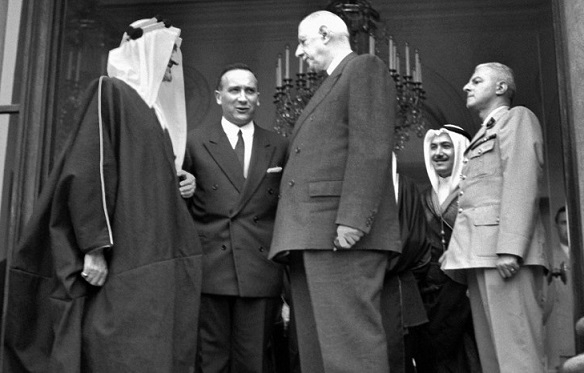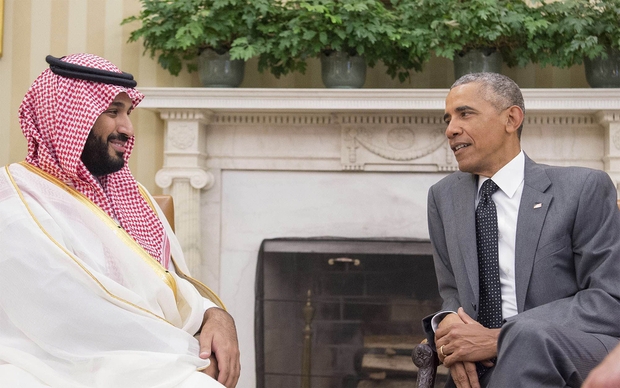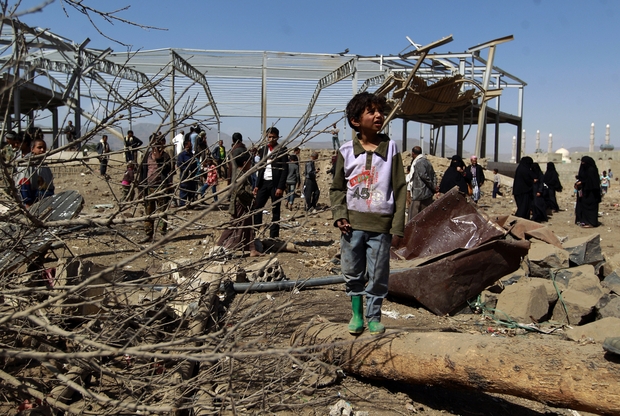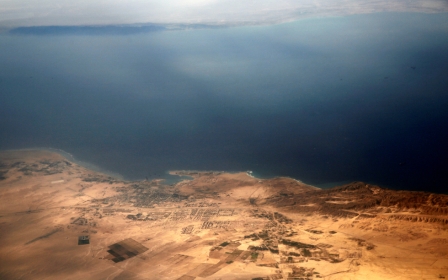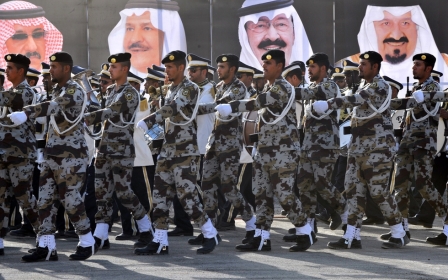2017: A Saudi existential crisis
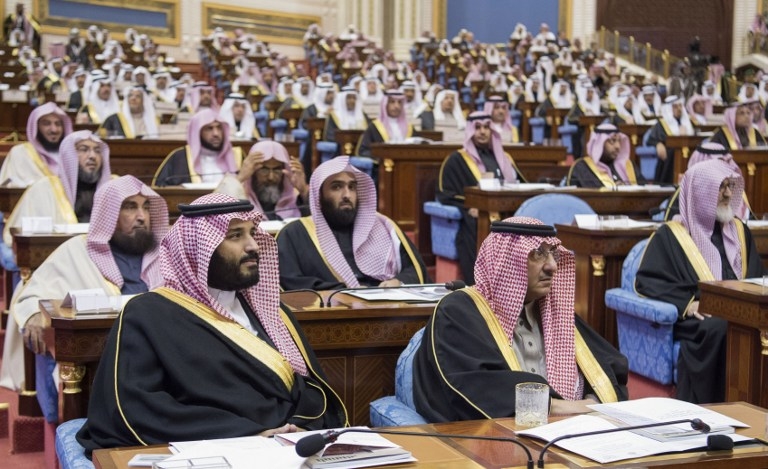
Saudi Arabia’s cycles of affluence and austerity are neither new, nor life threatening.
This dynamic will continue in 2017, with either continued economic recession or renewed prosperity on the back of fluctuating oil prices, yet it will not be the year’s defining feature.
For Saudi Arabia, this year will be defined by an existential crisis resulting from its failure to secure hegemony across the Arab world
For Saudi Arabia, 2017 will be defined by an existential crisis resulting from its failure to secure hegemony across the Arab world and emerge victorious in its long rivalry with Iran.
This failure and resulting crisis will have important consequences both domestically and regionally.
The Saudi leadership starts the New Year with a catalogue of failures in military adventures and charm offensives alike across the region.
READ MORE: It's complicated: Why Iran and Saudi Arabia don't get along
This bodes badly for the future and undermines its desire to be the sole arbiter of political affairs across the Arab world.
Failure in Syria
It was in 1967 that Saudi Arabia opportunistically sought to displace Cairo as the centre of gravity.
The rubble of Aleppo will come to symbolise the Saudi’s failure to depose Bashar al-Assad and the relative merits of the latter’s alliance with Russia, Iran and the Shia militia
Armed with its new colossal wealth, and a leadership pledging to save Arabs and Muslims, Saudi monarchs spent lavishly on propaganda and patronage networks across the region with the hope of becoming the undisputed leader.
Fifty years later, in 2017, King Salman and his two aides, Crown Prince Mohammed bin Nayef and Deputy Crown Prince Mohammed bin Salman, will struggle to disguise their dismal failure in Syria, where the battle of Aleppo resulted in the defeat of the rebels, most of whom had been armed by the Saudis and the West.
Allies of the West, including Saudi Arabia, have become fearful of the future and concerned that they too would be abandoned in their darkest hour.
The darkest hour
The fall of Egypt's Mubarak and Tunisia's Ben Ali, both Western allies, shocked Saudis for many reasons, but above all because their swift removal from power showed the reluctance of Western powers to intervene and save their allies, especially after the Iraqi experiment in direct Western intervention had utterly failed to deliver the promised dream democracy.
It seems unlikely that President Trump will continue to coddle and protect a Saudi Arabia challenged by deficits and debt
Although there are no viable alternatives at the moment, Saudis will begin to question the merit of their seven decade-long special relationship with the US.
Their humiliation in Syria is compounded by the removal of unconditional and exclusive support by the US. This policy shift, started by President Obama, is likely to continue and perhaps become even more entrenched when Trump moves into the White House in January.
Given his financial balance sheet approach to foreign policy, it seems unlikely that President Trump will continue to coddle and protect a Saudi Arabia challenged by deficits and debt. In Trump’s worldview, payment for protection is an article of faith.
But more than at any time in the past, Saudi Arabia will need both American protection and arms to wash away the humiliation it encountered in Aleppo where its proxy rebels were defeated.
Loss of authority
Saudi Arabia will also face challenges in the region. Traditionally compliant allies, such as Egypt’s President Sisi, are proving to be more defiant and with a mind of their own, despite the enormous subsidies that the Saudis paid.
On the Yemeni and Syrian conflicts, Cairo diverged from the Saudis and pursued its own national interest while the Saudis expected total cooperation and unconditional support.
With this loss of regional authority and the humiliation of Syria, King Salman is likely to focus on Yemen in 2017. Yet this too is an area where Saudi Arabia will struggle to achieve success.
Moreover, without an imminent victory in Yemen, the Saudi leadership will worry about its domestic Islamists who expected a swift godly victory against the Houthis who have been dubbed the blasphemous stooges of Iran.
The war on Yemen embodies a new Saudi militaristic nationalism that has inflamed the imagination of the Islamists but risks backfiring on King Salman and his son, Mohammed.
New wave of terrorism?
Should domestic Islamists combine their frustration with their leadership with the anger of those returnee militants from Syria and Iraq, Saudi Arabia will plunge into a new wave of terrorism, similar in its devastation to that which started in 2003, after Saudi militants returned from Afghanistan.
The war on Yemen embodies a new Saudi militaristic nationalism that has inflamed the imagination of the Islamists but risks backfiring on King Salman and his son, Muhammad
Saudi Arabia may find itself the direct target of a consortium of angry militants, who will have nowhere to go, if the Islamic State (IS) and other groups are successfully evicted in Iraq and Syria.
Without an exit strategy for defeated militants, many of them may sneak into their own country and regroup.
They will re-channel their militant effervescence inward, blaming their defeat on the so-called near enemy: nobody but the rulers of Saudi Arabia.
ANALYSIS: Shadow of Islamic State hangs over Saudi Arabia
Saudi Arabia’s challenges as it enters 2017 are not a function of dwindling oil revenues but rather the result of a diminished regional reputation.
No longer a respected regional broker in times of peace and war, it remains to be seen how the Saudis will react to this loss of respect abroad and whether this will lead to challenges at home.
- Dr Madawi Al-Rasheed is a visiting professor at the Middle East Institute at the National University of Singapore. She has written extensively about the Arabian Peninsula, Arab migration, globalisation, religious transnationalism and gender. On Twitter: @MadawiDr
The views expressed in this article belong to the author and do not necessarily reflect the editorial policy of Middle East Eye.
Photo: Saudi Crown Prince Muhammad bin Naif (front-R) and Deputy Crown Prince Muhammad bin Salman (front-L) at the opening session of the Shura Council in Riyadh on 14 December 2016 (AFP/Saudi Royal Palace)
This article is available in French on Middle East Eye French edition.
New MEE newsletter: Jerusalem Dispatch
Sign up to get the latest insights and analysis on Israel-Palestine, alongside Turkey Unpacked and other MEE newsletters
Middle East Eye delivers independent and unrivalled coverage and analysis of the Middle East, North Africa and beyond. To learn more about republishing this content and the associated fees, please fill out this form. More about MEE can be found here.



